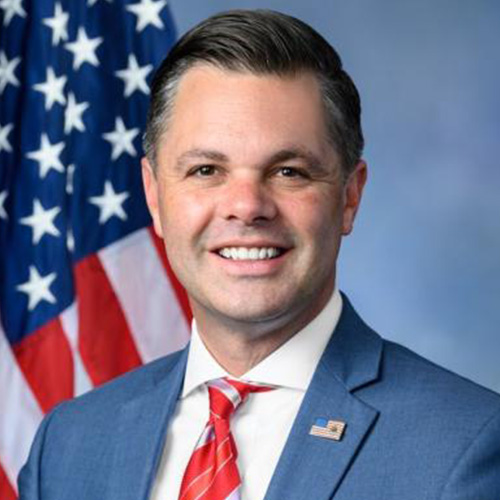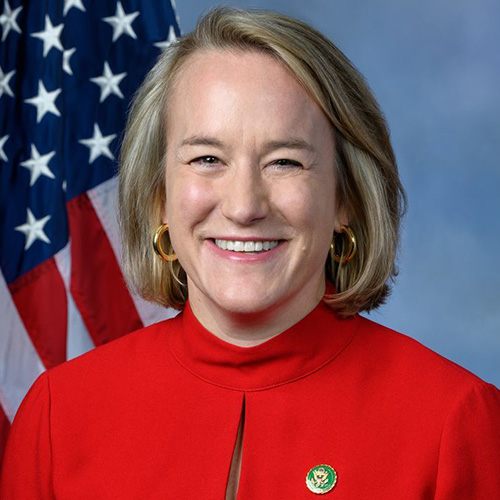Overview
The Ag BIO Act (H.R. 3253/S. 2467) would establish a cost-share grant program for the development of pilot and demonstration scale biorefineries in the U.S., streamline the program’s eligibility criteria, and clarify loan guarantee provisions under USDA’s existing Biorefinery, Renewable Chemical, and Biobased Products Manufacturing Assistance Program. The U.S. has a shortage of pre-commercial scale biorefineries, which entrepreneurs need to research, develop, and bring new bioproducts to market. The lack of access to this critical infrastructure forces American entrepreneurs to look offshore when scaling their operations, weakening U.S. competitiveness in the growing biomanufacturing marketplace.
The bill was reintroduced in the House of Representatives by Reps. Zach Nunn (R-IA) and Nikki Budzinski (D-IL) on May 7, 2025. The companion Senate legislation was reintroduced by Sens. Amy Klobuchar (D-MN) and Jerry Moran (R-KS) on July 24, 2025.

What They Are Saying

Sen. Jerry Moran (R-KS)
Investing in the bioeconomy will provide new markets for our farmers while furthering the goal of domestic manufacturing, supply chain resiliency and energy security. Developing innovative products like advanced biofuels will provide new and better products using home-grown feedstocks, creating new jobs and driving our economy forward.

Sen. Amy Klobuchar (D-MN)
Developing our biomanufacturing capabilities is good for our farmers and good for our economy. This legislation will create jobs and strengthen the Biorefinery, Renewable Chemical, and Biobased Products Assistance program, while also solidifying America as a leading manufacturer of these products.

Rep. Zach Nunn (R-IA)
We can’t let outdated federal grant programs hold (Iowa farmers) back. This bill ensures federal investment matches Iowa’s leadership and expands opportunities for rural communities.

Rep. Nikki Budzinski (D-IL)
I’m honored to partner with my colleague Zach Nunn on bipartisan legislation that supports the groundbreaking agricultural research led by students and scientists ... Strengthening America’s bioeconomy drives innovation, creates good-paying jobs, and opens new opportunities for family farms across the Midwest.

PBPC Executive Director James Glueck
We’re at a pivotal moment for the American bioeconomy, and the Ag BIO Act provides the critical tools this sector needs to scale up production of homegrown, plant-based solutions. We are grateful to ag bioeconomy champions on Capitol Hill for their strategic vision to introduce bipartisan legislation that will elevate U.S. leadership in biomanufacturing, create resilient supply chains, and open new markets for American farmers and innovators.

Corn Refiners Association President and CEO John Bode
This bipartisan legislation is a direct investment in rural America and those in the agriculture industry who drive our economy. By expanding markets for agricultural feedstocks and supporting the next generation of biomanufacturing, this legislation will help secure America’s leadership in industrial innovation while creating good-paying jobs in communities across the country.

Ag Bioeconomy Coalition Spokesperson Kent Roberson
The Ag BIO Act is important to the future of our nation’s ag bioeconomy. The U.S. can, and should, be the world leader in bioproduct research, development, and manufacturing, and the investments in this bill will go a long way to help make that happen. In a future with a strong American ag bioeconomy, farmers will benefit from new markets for their feedstocks, consumers will have more options to satisfy their needs, and workers will have good-paying jobs close to home. We’re excited to see the bipartisan Ag BIO Act introduced and are eager to help Congress enact this important legislation.
What would be the key benefits of the Ag BIO Act?
- Strengthen USDA’s Biorefinery, Renewable Chemical, and Biobased Product Manufacturing Assistance (9003) Program by updating the loan guarantee provisions to better support infrastructure development for biofuels, renewable chemicals, and biobased products.
- Re-establish a cost-share grant program to address the critical shortage of pre-commercial scale biorefineries in the U.S. and address the offshoring American bioproduct innovation.
- Remove bureaucratic barriers that inhibit program performance.
- Improve the scalability of American bioproducts to secure U.S. competitiveness in the growing, global biomanufacturing sector.
What would the Ag BIO Act do?
- Clarify the types of projects available for loan guarantees and expand eligible outputs to include renewable chemicals and biobased products, in addition to biofuels.
- Remove burdensome eligibility requirements for loan guarantees and allow the flexibility to waive a feasibility study for already commercially available technologies.
- For the cost-sharing grant program, require a technical and economic feasibility study and establish a priority scoring system to ensure that federal funding provides optimal benefits to the bioproduct market, agricultural producers, rural economic development, and U.S. national security.
119th Congress Bill Details
Senate Bill S. 2467
Introduced by Sens. Amy Klobuchar (D-MN) and Jerry Moran (R-KS)
House Bill H.R. 3253
Introduced by Reps. Zach Nunn (R-IA-03) and Nikki Budzinski (D-IL-13)
